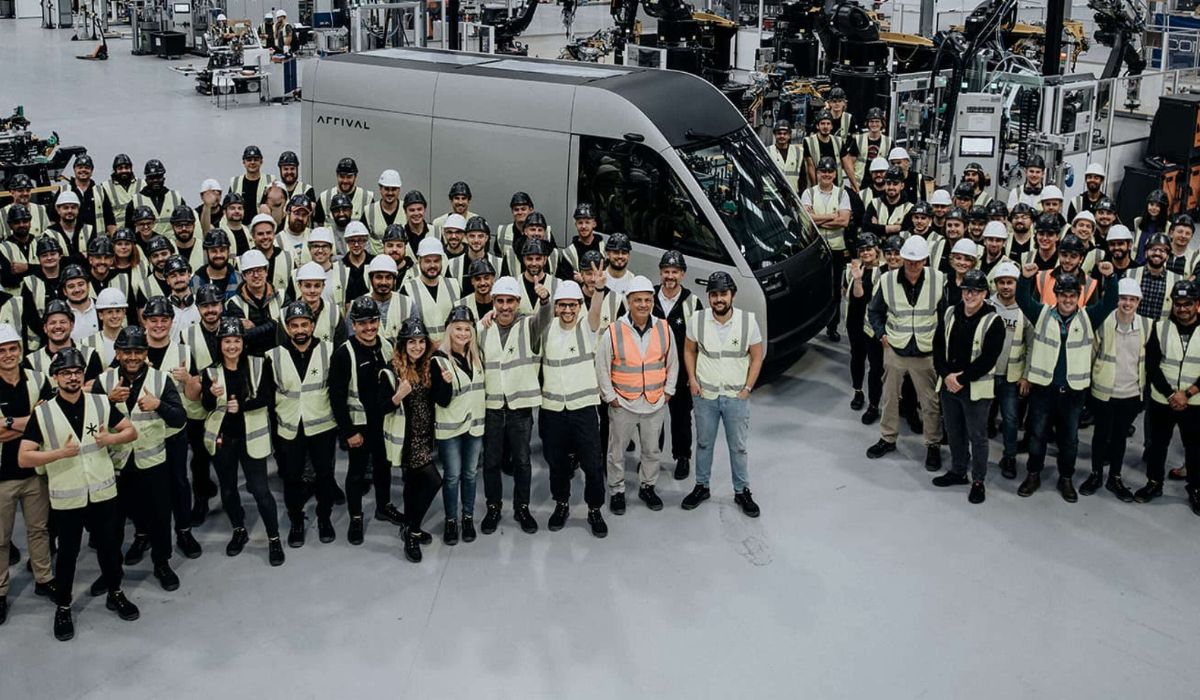Arrival Produces First Production Verification Van in Microfactory.
London, UK (30th September 2022) – Arrival (NASDAQ: ARVL) today announced that it has produced the first production verification vehicle from its Bicester Microfactory.
Arrival produced the first Van in a Microfactory using in-house technologies, including composite materials, autonomous mobile robots, in-house components and a software defined factory.
The milestone is a big steppingstone towards at-scale production and delivering vehicles to its customers.
“Today is an important day for Arrival. This is the first time a vehicle has ever been built in our Microfactory, using a new method that does not use a traditional assembly line. Although we have not yet achieved serial production, we are focused on making it happen. We will continue to produce vehicles in our Microfactory in order to master at-scale production,” said Denis Sverdlov, Founder and CEO at Arrival. “It has been more difficult than we had initially imagined, and I thank the team for the immense amount of effort, technology, innovative breakthroughs, and problem solving.”

The Arrival Vans produced this year in the company’s first Microfactory in Bicester, UK, will be used for continued testing, validation and quality control, rather than being sold to customers.
Further information will be provided on Arrival’s Q3 earnings webinar taking place on Tuesday, 8th November 2022.
Arrival had invented unique method of design and production of equitable electric vehicles (EVs) by local Microfactories. Arrival was founded in 2015 with a mission to make air clean by replacing all vehicles with affordable electric solutions – produced by local Microfactories.
A microfactory is either a small (often automated) factory for producing small quantities of goods or a capital-light facility used for local assembly of a complicated product or system. The Mechanical Engineer Laboratory (MEL) of Japan first coined the phrase in 1990, and it has more recently been used to characterise the strategy of companies like Arrival. The key benefits of the microfactory are the significant space, energy, material, time, and upfront capital cost savings.
In June this year, their electric VAN achieved EU certification and received European Whole Vehicle Type Approval (EUWVTA).

Arrival’s zero-emission Van is purposefully designed to be an environmentally sustainable and economically efficient commercial electric vehicle, compared to traditional Vans. It features Arrival’s advanced in-house hardware and software technologies throughout the vehicle to create an elevated experience and provide operators with the data and tools they need to optimize the running of a fleet. The vehicle is made from Arrival’s unique lightweight composite materials, which are designed to be recyclable, durable and lower in cost. The Arrival Van will be manufactured using Arrival’s pioneering new method of production – using Microfactories placed in cities all around the world. Microfactories are expected to have a lower Capex and cost of assembly, shorter commissioning time and be more environmentally friendly than traditional methods of production.
Arrival takes a modular and flexible approach to the design and production of its vehicles, which means the hardware and software is upgradable over a vehicle’s lifetime. The company will continually update and test its vehicles, in order to deliver the best possible product and experience for customers.
Arrival has over 140k non-binding LOIs and orders for variants of the Arrival Van. The rapid growth of e-commerce has led to an increase in demand for light commercial transport in cities, increasing both congestion and pollution. At the same time, there is an urgent need from cities, fleet operators and national governments to decarbonize operations in line with global public policy. At COP26, more than thirty countries, dozens of states and cities, agreed to work to guarantee that new cars and vans sold are zero-emission by 2035.
With commercial vehicles covering higher mileage on a daily basis, they are one of the biggest contributors to air pollution in Europe, accounting for 13% of road transport carbon pollution. The Arrival Van has been made to help accelerate the transition to electric vehicles, creating cleaner air for cities all over the world.

